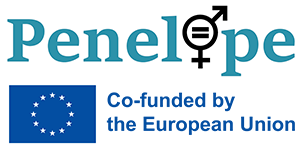

Could you please introduce yourself?
My name is Massimiliano Rumignani, and I am Project Manager and developer at the Spanish Cluster AMBIT – Living Spaces cluster. I have worked in different roles in the private and public sector as Quality Manager, Project and Policy officer, Business developer and in many European projects with different managerial roles.
I am an economist, and in the last 20 years I have worked on European projects, writing, managing, and implementing them.
Could you describe the organization you work in and your industry/business ecosystem in a few words?
AMBIT is a cluster in the furnishings sector. Over 150 companies are members of the cluster, and they represent the entire value chain: from producers of raw and semi-finished materials to manufacturers of various habitat products (furniture, floor and wall tiles, lighting, home textiles, home automation, etc.) and wholesale and retail distributors.
Could you give some facts, figures or a description of the status-quo related to the gender equality situation in your sector? What are the challenges encountered?
I don’t have exact figures, but the sector is clearly affected by a clear majority of male workers. This is especially noticeable in the production area and at the highest levels of management. But we are beginning to detect a change in the proportions of women and men in manager or top manager positions within sector companies.
What mechanisms do you think would be useful to address these challenges or improve the situation you have just described?
I would suggest to increase the knowledge of all personnel in charge of human resources management about gender equality issues and the benefits it can bring to the organization.
Policies and practices that support hiring at all levels of the organization regardless of gender should also be implemented. This requires defining clear, numerical targets. Another thing that could help would be the adoption of work-life balance policies and practices.
From your point of view and according to your experience/knowledge, do SMEs currently have difficulties in hiring? Why?
Yes, there is a clear lack of skilled workers in the sector. One of the reasons is that the furniture sector is not seen as very attractive one among youngers. The situation is also affected by an aging workforce
Would you say that gender equality offers a solution to overcome these difficulties? Please justify your answer.
I think it can play a role, but only in some cases. I think the low attractiveness of the sector is independent of gender.
Do you think that SMEs in your sector are aware of gender equality regulations?
I think most of them do, but properly implementing the actions to make gender equality a reality is another issue.
If so, do they know how to comply with these regulations?
It may be that they lack some of the required knowledge and practical instruments/tools to easily implement activities allowing them to comply with existing regulations.
What initiatives do you think could be useful to help SMEs in this process (trainings, webinars, reference person in the company, etc.)?
The integration of training modules on gender equality issues at all levels of training provision could help. Seminars to raise awareness among top managers could also help.
In what ways do you think your organization could or does contribute to helping SMEs to effectively integrate a gender perspective?
By making available the course developed in the above mentioned project (Woman in Power) and trying to sensitize top management with seminars.
Would you say that working on gender mainstreaming can bring solutions to other challenges you observe (retaining female HR in organizations by addressing issues such as equal pay, work-life balance, fight against sexist acts…; populating rural areas, etc.)? Please justify your answer.
I would say yes. It is clear that all policies and initiatives that favor the improvement of working conditions, the wellbeing of workers, and the working environment help companies to face all the challenges mentioned above.
What would be your main message on advancing gender equality approaches in clusters?
Gender equality, if well developed, can represent a driver of efficiency and innovation that companies in the sector need to preserve and increase their competitiveness. I think the opportunities offered by the sector Twin transition (green and digital) can support the deployment of gender equality approaches and policies.
Could you describe why gender equality is important to you personally and to the organization in which you work?
I consider gender equality to be important because I strongly believe in social justice and equity and that all people, regardless of gender, deserve equal opportunities and rights and to be treated fairly and non-discriminatorily.
I think that at the organizational level, gender equality can provide a wide range of perspectives and skills. Diversities are an added value that can bring a lot of benefits to the organization’s activities.
What are the experiences and/or projects that you are proud of that are related to gender equality or gender mainstreaming?
I have worked with these issues only in one project, ‘Women in Power’. That was a European project that aimed to strengthen the culture and practices of leadership and empowerment of women workers in traditional sectors, in our specific case in the furniture sector.
As a man, what is your perspective/opinion on the issue of gender mainstreaming?
I think that the integration of gender equality is fundamental in building an environment and a society that is more just, more pleasant and that can create greater well-being for all people. It is clear that for that, there is a need to break with the traditional gender roles that have developed and been maintained in our societies.
As a man, why is it important to support women in the workplace?
As I said before, I think that gender diversity can bring different perspectives and skills and that these can enrich the whole staff and improve the effectiveness and efficiency of the organization.
What would be your main message on advancing gender equality approaches in clusters?
Gender equality, if well developed, can represent a driver of efficiency and innovation that companies in the sector need to preserve and increase their competitiveness. I think the opportunities offered by the sector Twin transition (green and digital) can support the deployment of gender equality approaches and policies.


